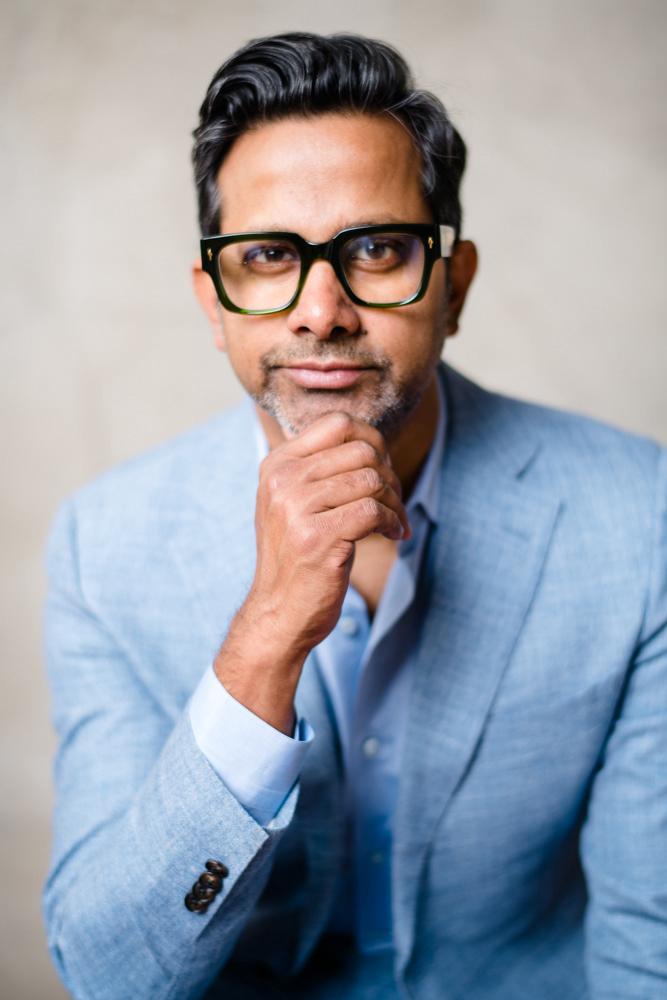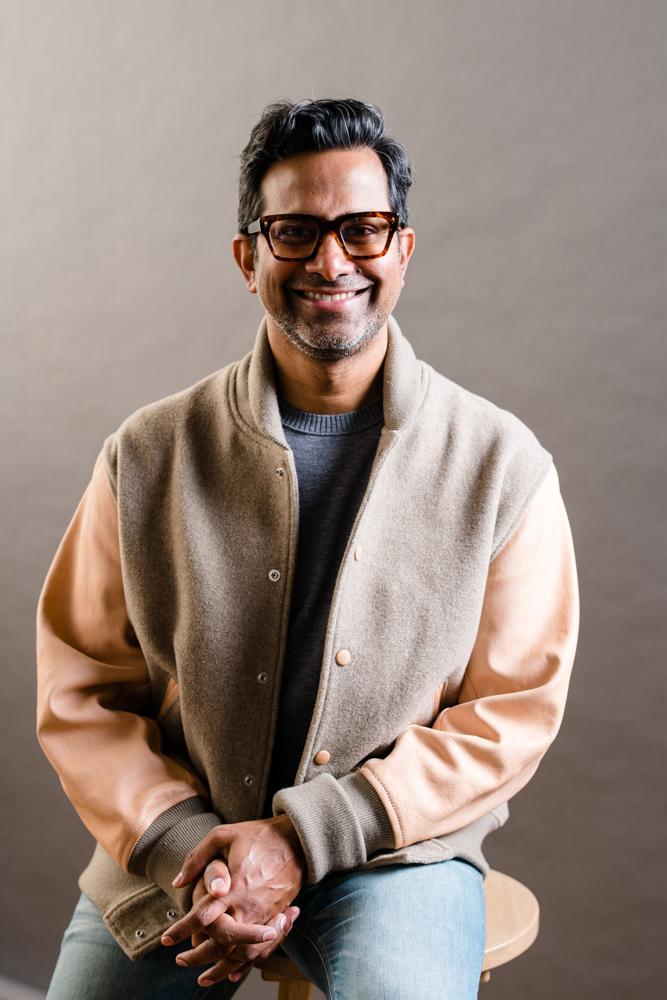“Why are you wasting your life on this? Why don’t you just follow the path that has been laid out for you, where you’re already crushing it?” When Balaji Bondili, then a senior consultant at Deloitte, began pitching his idea to crowdsource talent and expertise to meet the company’s ever -growing, global client needs, he was met with skepticism. He chose not to back down.
This was the year 2013, and Balaji was then pitching what would become Deloitte Pixel. In the last decade, the company’s open talent model has helped it stay ahead of the curve in the new age, disrupt-or-disappear marketplace. Pixel has completed 450 crowdsourcing challenges across 250 projects and worked with tens of thousands of participants.

Balaji Bondili
Success as an intrapreneur, or as a ‘corporate explorer’, as Balaji has been described by Michael Tushman in Corporate Explorer: How Corporations Beat Startups at the Innovation Game, was an uphill journey. When he began working on the idea, Balaji had been travelling the world for nearly ten years, and was thriving professionally. However, the idea to take the leap into innovation, and push an idea that seemed unheard of at the time, within a company like Deloitte, came from a personal need.
“I joined Deloitte in 2003,” Balaji tells Global Indian. “It was also when I got married. But as two consultants travelling the world, you don’t spend much time with each other. So I was thinking about what I wanted to do next, and if I could figure out a career and do really well without having to travel.”
Finding his voice
Balaji joined Deloitte in 2003. He was living in Hyderabad then, where after completing his undergrad in genetics, microbiology and chemistry, he found he had no interest in the field. “I’m not good with rules and tests, and I have issues with testing as a concept,” he admits. This tenacity, and the determination to do what he believed in, would eventually pay off.
“I grew up in a joint family, the youngest of 16 cousins. I was always the little boy and that was foundational in a way. When someone tells me I can’t do something, that’s exactly what I’m going to do. Not in a negative sense, but when you’re the youngest of 16, you have to tell people that you exist,” he says. So, instead of taking the tried and tested medical / engineering path to professional success, he did an MBA.
An upward trajectory at Deloitte
In 2003, Balaji Bondili joined Deloitte, then a newer company, as a research analyst. “I built credibility in the company, so when they started their consulting team, I was the first person to join,” Balaji recalls. This would mark a new phase in his career, and he had to start the process of recruiting from all the business schools.
This led him to strategy consulting, and built a team intended to stay in India and deal with clients locally. However, he flew back and forth to the US, where he had clients, and eventually became the first person from India to lead a project in the US for Deloitte. The team grew into a cohort of people who were actually travelling to where the work was located.
“I was travelling to the US, and spending up to six months there each year,” he said. “By the time I moved fully, I was spending nine months of the year there.” However, the busy lifestyle and the constant travelling took their toll, and Balaji was beginning to understand, firsthand, the downsides to ‘old school consulting’. “I was also running a VC fund for a Top 5 Pharma company and dealing with Series A and Series B startups. New companies were looking for new ways to solve old problems and I wondered why Deloitte wasn’t doing that.”
New solutions to old problems
The ‘old school consulting problem’, Balaji explains, is that it involves hiring very smart people and deploying them on client projects. “For every dollar of revenue you create, you have to hire someone new every time.” The company was growing really fast and there aren’t enough graduating students to keep up with the demand. That impacted the quality of hires, the amount of travel involved was only growing – even in 2020, Deloitte remained one of the largest travel buyers globally.
At this point, the idea of crowdsourcing was just a ripple in business communities. It reminded Balaji of an experience back in 2004, when the tsunami hit South East Asia. At the time, he was reading up on the disaster and found a website named tsunamihelp.blogspot.com. He signed up there as a volunteer, becoming part of a team spread out around the world. That relief effort grew hugely, and Google even linked their website to its homepage, as it had become one of the biggest clearing houses for relief efforts. “I had never met the founders, volunteers or the core team but we created an impact that was massive,” he says.
If a crowdsourcing system could be set up and structured right, could it be a new age solution to the old consulting problem? This would bring in fresh ideas from around the world, with a diverse set of perspectives to a single problem. It was also more economical. “On the other hand, designing an app in-house costs tens of thousands of dollars. We’re always told that we can’t have all three: cheaper, faster, better. AI and crowdsourcing break that paradigm altogether.”

Balaji Bondili
“Most innovation is politics”
Having a winning idea is one thing, bringing it to fruition quite another. And being an intrapreneur doesn’t mean an easier path, as Balaji would learn. “You have to prove that you can solve the problem, then get funding. So for example, as a client project is happening, we also crowdsource ideas on the side. Then we show the blind outcome to the client. We saw that there was a significant statistical chance that at a lower price, we could generate equivalent or better outcomes,” Balaji explains.
“There is a culture component to innovation,” Balaji agrees. At Deloitte, another challenge was that people would not openly criticise. “Instead they say it is very nice, so you have to look for nuanced perspectives. If you ask 10 people, nine will say okay but not do anything about it. We call that Benevolent Neglect.” He learned to not give up, and to follow through on the person who agrees to try the new tool. And if the outcome is good, others will follow – slowly.
Change is harder in a large company, also because it has a leadership ecosystem meant to protect it from rapid change. “If you don’t respect that, you’re also going to make enemies,” Balaji says. “Most innovation is politics.” He also learned to do away with what he calls the ‘entrepreneur’s ego’, by hiding the mechanics of the solution and only showing people the outcome on the frontend. “Entrepreneurs want to communicate everything they know, they want to prove how much they know. But that’s irrelevant to the consumer. How many people understand TCP / IP protocols? Do they need to understand it?”
“Kill the brand”
When it came to scaling, Balaji chose a “completely integrated end point.” This meant he worked to integrate Deloitte Pixel into the core of the company, to the point where people didn’t even know if they were using the old option or the new one. “You blur the line until it becomes part of the fabric.” The other option, he explains, is to set up a completely different, distinct vertical on its own. “Right now, Deloitte Pixel has scaled significantly. My choice was to kill the brand. Because sometimes, a distinct brand could again just be serving the entrepreneur’s ego. If a team wants app designs, they get app designs, they don’t need to know who is making it.”
Other pursuits
Balaji Bondili, who recently quit his full time job at Deloitte, lives in Nashville with his wife and their daughter. He also teaches at Harvard Business School and Stanford School of Business a few times each year. His wife is the founder of Butterfly Voyage, a real estate company and also teaches at Harvard Business School and Stanford School of Business a few times a year.

Balaji Bondili with his wife and daughter
Apart from that, he makes sure he focuses on work-life balance, and quality family time. “I have my own formula – 35 percent of my time is is for work, 40 percent is for family and the rest is just for me.” He likes to read and has a soft spot for Indian historical fiction, enjoys painting, loves going to EDM concerts and takes pride in his shoe collection.

